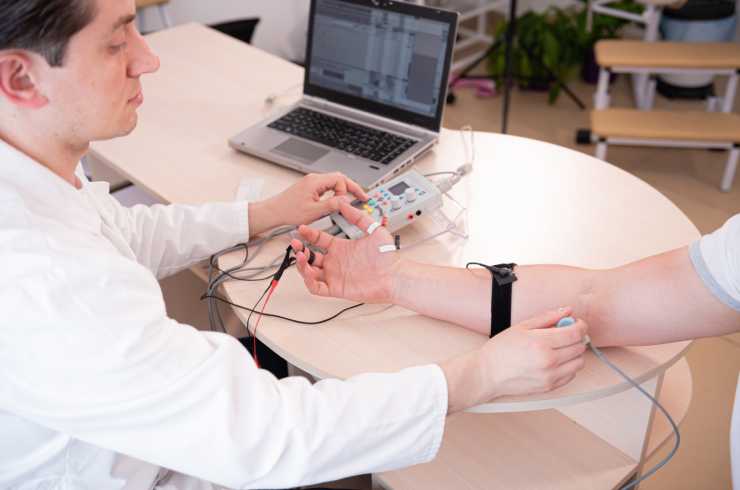Services
Need any help?

At Dr. Pampaniya’s Neuro Hospital and ICU, we use Electromyography (EMG) to find out what’s really going on when your muscles feel weak, painful, or numb. This advanced test helps us detect problems with how your muscles and nerves are working together.
What is an EMG?
EMG is a diagnostic test that measures the electrical activity of your muscles. During the test, a very thin needle electrode is gently inserted into specific muscles. These electrodes pick up signals that your muscles create when they move—or even when they are resting.
The test may cause a slight pinching feeling, but it’s generally safe, quick, and highly informative.
When is EMG Recommended?
Dr. Nakul Pampaniya may advise an EMG if you’re experiencing:
Muscle weakness or wasting
Tingling, numbness, or burning sensations
Difficulty moving arms or legs
Frequent muscle cramps or twitching
Suspected nerve or muscle disorders
EMG helps diagnose conditions like:
Peripheral neuropathy
Radiculopathy (pinched nerves in the spine)
Motor neuron diseases (e.g., ALS)
Muscular dystrophy
Myasthenia gravis
Nerve injuries after trauma
Preparing for Your EMG
Avoid using lotions or oils on your skin that day.
Wear loose-fitting clothes.
Inform your doctor about blood thinners or any medical implants.
